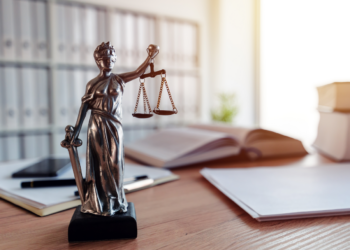Stricter federal laws regulating the shipping of crude oil by rail do not go far enough to ensure the prevention of an oil spill or explosion, area environmental groups say.
The U.S. Department of Transportation is considering new regulations for trains carrying crude oil out of South Dakota”™s Bakken Shale, but Ned Sullivan, of the land trust organization Scenic Hudson, said those regulations come with too many loopholes.
“A crude oil spill into the Hudson River would be catastrophic to the public health and natural resources of our region,” Sullivan said in a statement. “The federal government has the responsibility to create a system of regulations, inspections and emergency response procedures to protect our communities and the Hudson River.”


The country is in the midst of a surge in the crude oil industry ”“ with the amount moving through the United States rising from 9,500 carloads in 2008 to 415,000 carloads in 2013, according to the DOT. The Hudson Valley sees between 15 and 40 trains carrying crude travel through the area each week, reports say. On average, a shipment travels 1,000 miles from mine to refinery.
Bakken crude, which is considered more volatile than other forms of crude, has been the focus of policymakers because it is the oil that has been involved in several recent high-profile derailments. But Sullivan said the DOT”™s proposed regulations have loopholes that allow for Canadian tar sands crude to continue to be transported in old DOT-111 tankers, the commonly used tank cars. There is also a loophole for Bakken crude trains with fewer than 20 cars, he said.
Paul Gallay, the president of the environmental group Riverkeeper, said the proposed changes “defer to the rail and oil industry at every turn.”
“Put simply, these rules won”™t stop the next bomb train disaster,” he said. Riverkeeper resources say that 1.15 million gallons of crude were spilled due to rail accidents in the U.S. last year ”“ more than the amount spilled during the previous four decades combined.
Several groups have called for the banning of DOT-111s entirely, but the new regulations would allow them to continue to operate ”“ albeit to slowly phase them out for Bakken crude transportation. The rules would also create new standards for braking controls and limit many trains”™ speeds to less than 40 mph ”“ although a recent Virginia incident in April saw a train traveling 25 mph jump the tracks.
New York state government worked with federal inspectors and began “blitz” inspections of crude oil rails and tankers in February after several high-profile accidents domestically and in other countries. A 2013 tanker explosion in Canada killed 47 people.
Gov. Andrew Cuomo”™s office announced last month that in its latest round of inspections it looked at 766 crude oil tank cars and 167 miles of track. The largest defect it identified was a split rail on the CSX Corp.-owned mainline from Buffalo to Syracuse. Since the start of the inspections, Cuomo”™s office said, 6,300 rail cars were looked at, including 4,292 DOT-111s. In those inspections and in looking at 2,200 miles of track, 658 defects were found and nine hazardous material violations were issued.
Many of the defects were categorized as “noncritical” and involved worn brake shoes, loose bolts and track obstructions. Noncritical defects are required to be repaired within 30 days, Cuomo”™s office said.
Jack Gerard, president and CEO of the American Petroleum Institute, an oil and gas industry group that represents 600 members, said it had since 2011 focused on building tank cars that exceed existing safety standards.
“While tank cars are an important part of the comprehensive approach to safety, there are limits to what tank car design can achieve,” he told reporters on a conference call. “Getting to zero incidents will take an equal effort to prevent accidents and improve accident response.”





















WHAT ARE THEY AFRAID OF?
It’s not a secret: Bakken oil trains from North Dakota can be rendered NON-explosive, through a process called “Stabilization”
Yet, across the country; most media and politicians, even those I know to be well aware of stabilization, consistently leave out this fact…
…choosing to speak only about the ancient DOT-111’s, which might make decent giant charcoal grills, and our decrepit rail system, a constant concern for the last 200 years.
There will still be spills, and fires, but people in the area of an incident have a MUCH better chance of surviving, if the humongous fireballs are taken out of the equation.
Ron Schalow
Fargo, North Dakota
The Coalition for Bakken Crude Oil Stabilization